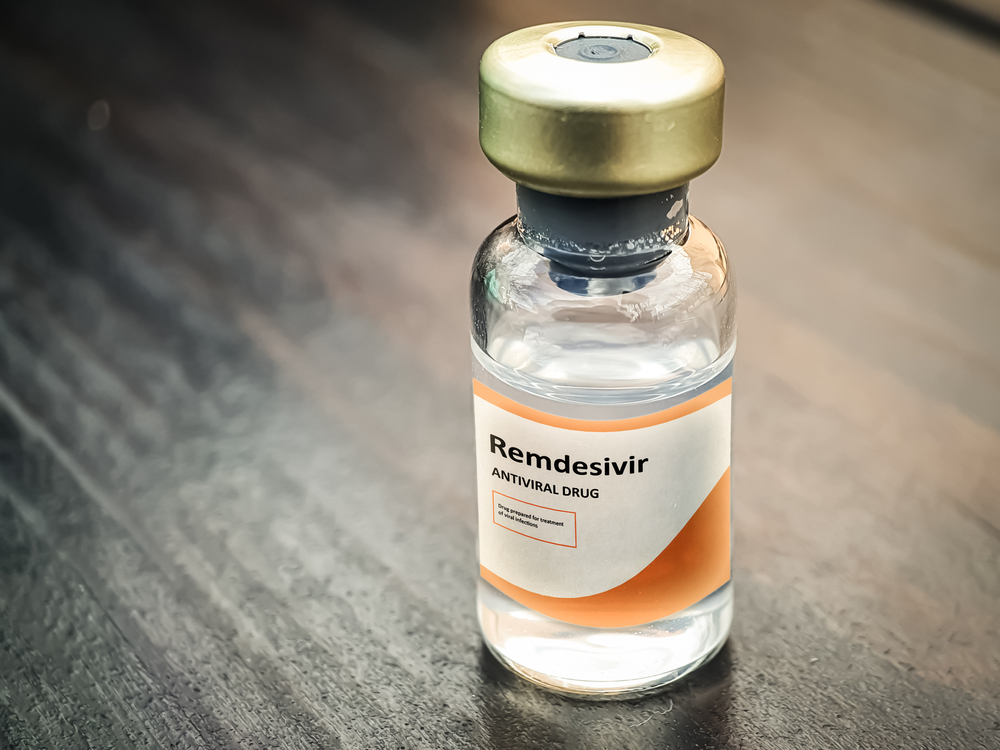Pharma giant Gilead’s antiviral drug remdesivir has won US regulatory approval for emergency use in patients that are severely ill from Covid-19 but the drug, which flunked as a treatment for hepatitis and the deadly Ebola virus, is no magic bullet for coronavirus.
New US research on which the Food and Administration’s nod was based suggests that the drug may shorten the length of time some people are sick with Covid-19 but patients taking the medicine can still die.
The US regulator’s approval for administering remdesivir to treat Covid-19 patients was based on preliminary results from a controlled, randomised trial by the US National Institutes of Health involving 1,063 severely ill cases. The study showed that patients dosed with remdesivir had a 31 per cent faster recovery time than those given a placebo.
Specifically, the study reported that the median time to recovery was 11 days for patients treated with remdesivir compared with 15 days for those who received a placebo. The words “severely ill” applied to the patients in the study meant that their blood oxygen levels had fallen to dangerously low levels. The study also suggested -- but gave no statistical proof -- that the drug offered better survival chances with a death rate of 8.0 per cent for those receiving the medicine against 11.6 per cent for those given a placebo.
What excites researchers the most about remdesivir is that “it has proven that a drug can block this virus,” Dr Anthony Fauci, who heads the US National Institutes of Health, told reporters in Washington. Fauci has become a household name, often appearing with Donald Trump at his White House coronavirus briefings and walking the US president back from some of his most far-reaching medical claims about treatments for the fast-moving pandemic.
Preliminary data
“The data shows that remdesivir has a clear-cut, significant, positive effect in diminishing the time to recovery,” said Fauci. “Although a 31 per cent (recovery time) improvement doesn’t seem like a knockout 100 per cent, it is a very important proof of concept,” he said. Fauci cautioned, though, that the preliminary data indicating remdesivir reduced the mortality rate of severe Covid-19 cases wasn’t “statistically significant” and that more study was required. Doctors are still waiting for the comprehensive data behind the preliminary numbers released by the US National Institutes of Health to examine the findings more closely and get a better fix on remdesivir’s potential effectiveness.
The improved recovery time reported by the US researchers from remdesivir is similar to how influenza drug Tamiflu works. While not curing patients, Tamiflu lowers the length of time people are unwell with the flu.
Dissenting voices
Still, there are dissenting voices about remdesivir’s potential, specifically in an article which just appeared in the respected UK medical journal Lancet based on a smaller study carried out in China. That study, which was a randomised, double-blind, placebo-controlled trial and peer reviewed, reported that the broad-spectrum antiviral treatment offered no benefits.
The study involved 237 patients in Hubei Province which was the epicentre of the Chinese outbreak. Researchers found that patients who received remdesivir did not recover any quicker than the patients given a placebo. They also found that the 28-day death rate was similar between the two groups, with 22 patients or 14 per cent that died in the remdesivir group versus 13 per cent in the placebo group. The Chinese study also found that remdesivir did nothing to reduce viral loads of Covid-19 in patients. “Remdesivir did not result in significant reductions in SARS-CoV-2 RNA loads,” the report said.
Initial target: Ebola
Gilead began developing Remdesivir in 2009 as a possible treatment weapon against Ebola but the antiviral medicine wasn’t effective against the virus. Then Dr Mark Denison, an infectious disease expert at Vanderbilt University, who was a co-developer of remdesivir, started looking at whether the drug could be used against coronaviruses. Denison, who started studying coronaviruses some 30 years ago, discovered remdesivir in the laboratory destroyed every coronavirus including ones causing the common cold but didn’t take the research further. Then, when Covid-19 struck, investigators decided to see if remdesivir, which has already cleared human safety tests, could be repurposed for Covid-19.
Risks of HCQ
Meanwhile, hydroxychloroquine, the decades-old malaria drug US President Donald Trump hyped as a “game-changer” doesn’t appear to help patients clear the virus from the body and risks causing substantial side-effects, a new Chinese study of 150 patients showed. The drug heightens risk of abnormal heart rhythms, particularly when taken in certain combinations or by those who have risk factors for sudden cardiac death. But the drug did seem to reduce an inflammation marker in patients known as C-reactive protein, the Chinese researchers said.
Mumbai, separately, has temporarily abandoned plans to carry out a large-scale test of whether the anti-malaria drug’s ability can prevent or treat Covid-19. Mumbai was planning to test hydroxychloroquine in Dharavi, Asia’s most congested slum, and Worli, another neighbourhood hard-hit by the virus. But the city shelved the idea after experts noted little evidence for the trial’s potential efficacy as well as the risks it posed.
The one promise
But one medication that may hold promise in treating Covid-19 is the Japanese flu drug favipiravir. India’s Glenmark Pharmaceuticals has got approval from the national drug controller to carry out clinical trials administering favipiravir tablets on coronavirus patients.
Favipiravir is a generic version of Avigan, made by Fujifilm Toyama Chemical. Glenmark developed a generic version of the antiviral medication initially developed to treat influenza in Japan. It has been studied in China and other nations as a way to treat Covid-19. Japan approved Avigan as a flu drug in 2014 but it was never given widely as tests had shown it could potentially cause birth defects in animals. The drug was used, though, in China to help tackle the first outbreak of Covid-19. The Chinese reported a trial involving 340 people showed favipiravir helped patients test negative for the virus in a median of four days against 11 days for those not administered the drug.
Citing that study, China's science minister, Zhang Xinmin, called the drug 'clearly effective.' As well, X-rays showed those treated with the drug displayed less lung damage than those who weren't, according to the Chinese study.











